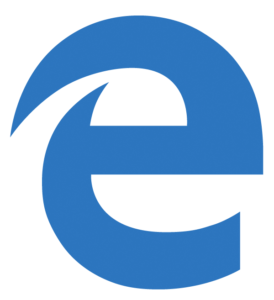Dude, You’re Getting A Chromebook! Why Windows S Will Accelerate Chromebook Sales
The year of the disposable OS is here. With last week’s announcement of the Surface laptop brings to the table Windows S. For those who don’t know Windows S, it’s a stripped down version of Windows – 3rd party app wise. Apps can only be delivered via the Windows Store, which is a good and a bad thing. For starters, this prevents end users from finally downloading toolbars, useless software, and of course, malware. For your K-8 student, or your AARP-death customer, this OS seems to be the fit us in IT management have long been craving: An OS that someone besides Microsoft cannot possibly mess up. (Don’t worry – The company that first brought you an OS that required you to hit start before shutting down will soon screw this up too) There is one problem with this new Chromebook / Windows hybrid OS:

Yes, Microsoft. You have created the ultimate solution for Windows – but you have also created the technological equivalent of the Toyota Prius at the same time (Edge). Users cannot download Chrome, or Firefox for that matter. And if you’re thinking Google will bring their beloved Chrome to the signed Windows store, think again. Does this sound familiar? When Windows Phone had its (short) time in the spotlight, Google pulled any and all native support for the platform. Within a couple of years that platform came to a close, and Android consumed what market share Windows Phone had. Google holds the chess pieces, and at this point in time, the whole damn board. The world is a connected place, and when the average user is using their smartphone / tablet 80% of the time now, they are using Chrome. And when they do hop on their Windows PC, they are going to expect their bookmarks, settings, and extensions to transfer over. You cannot make a Chromebook replacement without allowing Chrome on your device, and you cannot expect people to jump into a pool when they haven’t checked the water first. This pool is shallow, and at the bottom you can see the Zune.
Now, don’t get me wrong, a version of Windows like this is a great thing. To be honest, I was an original supporter of Windows RT, and I believed the platform had potential. My basis was parallel with Windows S – an OS that cannot be altered or destroyed 3rd party wise. Windows S has an advantage of domain join, which is absolutely a great thing to have, however, the era of the Windows domain will soon be all but done for, (Another topic for another day) and Windows S will soon fade into the fallen products of Redmond. I hate saying this, because I make my living servicing and building Windows networks, but the writing is on the wall.
A good majority of our online, (And soon offline) lives now à la carte. Don’t believe me?
Where is your music? Spotify (Amazon Web Services)
Where is your movies? Netflix (Amazon Web Services)
Where are your photos? Dropbox / iCloud
Where are your backups? (iCloud, seriously)
The mobile world has forced the market to move around, in ways no one at Microsoft is really seeing yet. You buy a new iPhone, sign into iCloud, and your life is back. No worries, right? You sign into any modern device with a piece of glass and you’re just a few taps away from restoring your digital identity. You pick up a new Windows device and.. Yeah, welcome to technical hell. Even MacOS has gotten some of this right, with app management and deployment via their app store. Microsoft tried, but their app store is not just inferior – no one wants to write for it. With no incentive for developers to write apps for the store, there is no central management. With over a billion Windows apps out there, we’re perfectly comfortable side loading software – In fact, we were trained to do so. Remember popping in a CD rom and installing your software? For these reasons and more the average Windows user believes this is the only way to install software (Downloading, running the exe). The average iPhone / Android user, however, is safely secured by all these 3rd party apps provided via the store, hosting your digital life and information (Snapchat, Facebook, Whatsapp etc.).
The OS is becoming transparent and nonexistent, and the digital kingdom of apps will soon reign supreme. While these mobile-first OS’s have severe limitations networking and management wise, (For now) the Chromebook will bridge that gap. Google has come up with a creative way to manage, deploy, and secure a portable app launcher and what little data they locally contain. If your Chromebook blows up, great! Sign into another one and away you go! What’s even more invasive is the G-suite and the suite of Google apps that are.. Free. You see, Microsoft, Google is playing the long game. Windows is reigning supreme in business for now because us kiddos and students grew up using Office and Windows in our schools, to which we carried these products with us into the workplace. Now that Google is taking over schools and universities, do you expect Office to be carried into the workplace in 20 years? Don’t bet on it Redmond.
Just please someone rid of printers. Completely. – IT specialists.